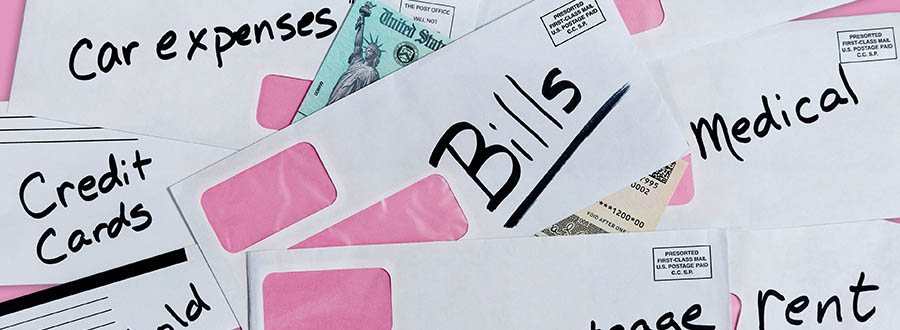Key Points
- COVID-19 relief packages provide aid for essential expenses like housing and health care costs.
- Careful budgeting in conjunction with the abundance of aid could improve your overall financial state.
- In many cases, you can settle or pay down debt during the pandemic.

The global pandemic triggered enormous aid packages that left many households with excess income. Not only did business shutdowns and work from home orders lower costs, but you might have received enhanced unemployment, direct stimulus payments, or other assistance that improved your financial circumstances.
The abundance of relief available could also put you in a position to shore up finances and emerge financially stronger than you were a year ago. Here are the key areas to review when considering your long-term financial stability.
Job Security
The two most important factors to financial success are earning a steady income and spending less than you make. The pandemic disrupted job security for millions of Americans. You might have experienced a disruption in revenue because of the mandatory shutdowns or realized you need to pursue a different field to achieve job security.
Generous unemployment benefits apply not only to laid-off workers but also to shut down small business owners, freelance workers, and other job categories that do not generally qualify for benefits. In addition to the extended categories, enhanced federal payments on top of the traditional state unemployment benefits and payments over a more extended time period may give you enough income to seek a different or better job.
Gig work is another area that has seen a rapid increase in opportunities, allowing you to supplement your income with a side job and achieve your financial goals faster.
Health Care Costs
Losing a job, and company-sponsored health care, during a worldwide pandemic can directly impact your wallet. Out of pocket costs often include premiums, co-pays, and deductibles, based on the care you receive. COVID-19 could expose you to more health risks and higher healthcare costs.
To address these concerns, Congress included assistance in the COVID-19 relief packages that include the following:
COBRA premium subsidy: The American Rescue Plan (ARP) authorizes a 100% subsidy of COBRA insurance premiums for employees who chose to keep their employer-sponsored plan after a layoff. The subsidy remains in place through September 2021.
Reopening marketplace plans through Healthcare.gov: Typically, you may only enroll in a government-subsidized healthcare plan on www.healthcare.gov in the fall or when you experience a qualifying event. However, you can sign up for a new policy due to the pandemic, or change your current plan, until August 15, 2021.
Higher insurance subsidies: The ARP, signed into law in March 2021, also removed the income cap on tax subsidies and increased the premium paid for plans obtained through the Affordable Care Act (ACA). The changes mean more families will qualify for assistance. The subsidy received could be higher than the existing one, allowing you to pay less or receive better coverage for the same out-of-pocket cost. The changes last through 2022 and cap your payment at no more than 8.5% of your income, instead of the current limit of 10%.
Free testing and vaccinations for COVID-19: The CARES Act requires insurance companies to offer free testing for COVID-19 for all medically necessary testing, regardless of insurance coverage.
Coverage also includes free vaccinations while the state of emergency remains in place.
Insurance companies will pay for the treatment and care for COVID-19 under the plan terms, which could require you to meet co-pays and deductibles.
Financial Preparedness
Build your emergency fund: An emergency fund is a fundamental building block of any financial plan. Having a little money set aside in a savings account can prevent the need to borrow money for every unplanned expense.
Maximize HSA contributions: When you enroll in a qualified healthcare plan, you can contribute pre-tax dollars into a healthcare savings account. The funds grow tax-free, and you can withdraw them from the account tax-free, provided you use the funds to pay for qualified medical expenses.
Add to retirement accounts: Most families are short on retirement funding. Using extra income for retirement needs could have financial benefits well into the future. The preferred tax treatment can reduce taxable income now or lower taxable income in retirement, depending on the accounts you choose to contribute.
Debt Management
Pay down high-interest debt: Debt increases your cost of living and can prevent you from having extra money for other financial proprieties, like retirement, college funds, or vacations.
Enroll in a debt settlement program to get debt under control. If you experienced a financial hardship in the last year, you might qualify for a debt settlement program. These programs allow you to repay creditors for less than the total amount owed and eliminate double-digit interest debts within a few years.
